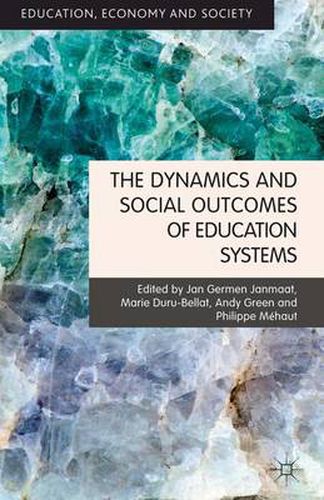Readings Newsletter
Become a Readings Member to make your shopping experience even easier.
Sign in or sign up for free!
You’re not far away from qualifying for FREE standard shipping within Australia
You’ve qualified for FREE standard shipping within Australia
The cart is loading…






This title is printed to order. This book may have been self-published. If so, we cannot guarantee the quality of the content. In the main most books will have gone through the editing process however some may not. We therefore suggest that you be aware of this before ordering this book. If in doubt check either the author or publisher’s details as we are unable to accept any returns unless they are faulty. Please contact us if you have any questions.
Some scholars argue that education systems across the western world are becoming increasingly similar due to the influence of transnational discourses and organizations. Others believe that education is the panacea for all problems of social cohesion. After all, aren’t the well-educated usually more tolerant, civically engaged and trusting than the poorly educated? This book critically examines both claims. It finds that western countries still differ markedly on key aspects of their education systems and that these differences reflect distinct political traditions and different responses to a set of competing normative and political principles. The findings further suggest that raising the average education level is unlikely to be an effective strategy for promoting social cohesion. Instead, more promising are policies targeting the opposite ends of the lifelong learning continuum: universalizing pre-school education and care and promoting adult education with a pronounced second chance character.
$9.00 standard shipping within Australia
FREE standard shipping within Australia for orders over $100.00
Express & International shipping calculated at checkout
This title is printed to order. This book may have been self-published. If so, we cannot guarantee the quality of the content. In the main most books will have gone through the editing process however some may not. We therefore suggest that you be aware of this before ordering this book. If in doubt check either the author or publisher’s details as we are unable to accept any returns unless they are faulty. Please contact us if you have any questions.
Some scholars argue that education systems across the western world are becoming increasingly similar due to the influence of transnational discourses and organizations. Others believe that education is the panacea for all problems of social cohesion. After all, aren’t the well-educated usually more tolerant, civically engaged and trusting than the poorly educated? This book critically examines both claims. It finds that western countries still differ markedly on key aspects of their education systems and that these differences reflect distinct political traditions and different responses to a set of competing normative and political principles. The findings further suggest that raising the average education level is unlikely to be an effective strategy for promoting social cohesion. Instead, more promising are policies targeting the opposite ends of the lifelong learning continuum: universalizing pre-school education and care and promoting adult education with a pronounced second chance character.